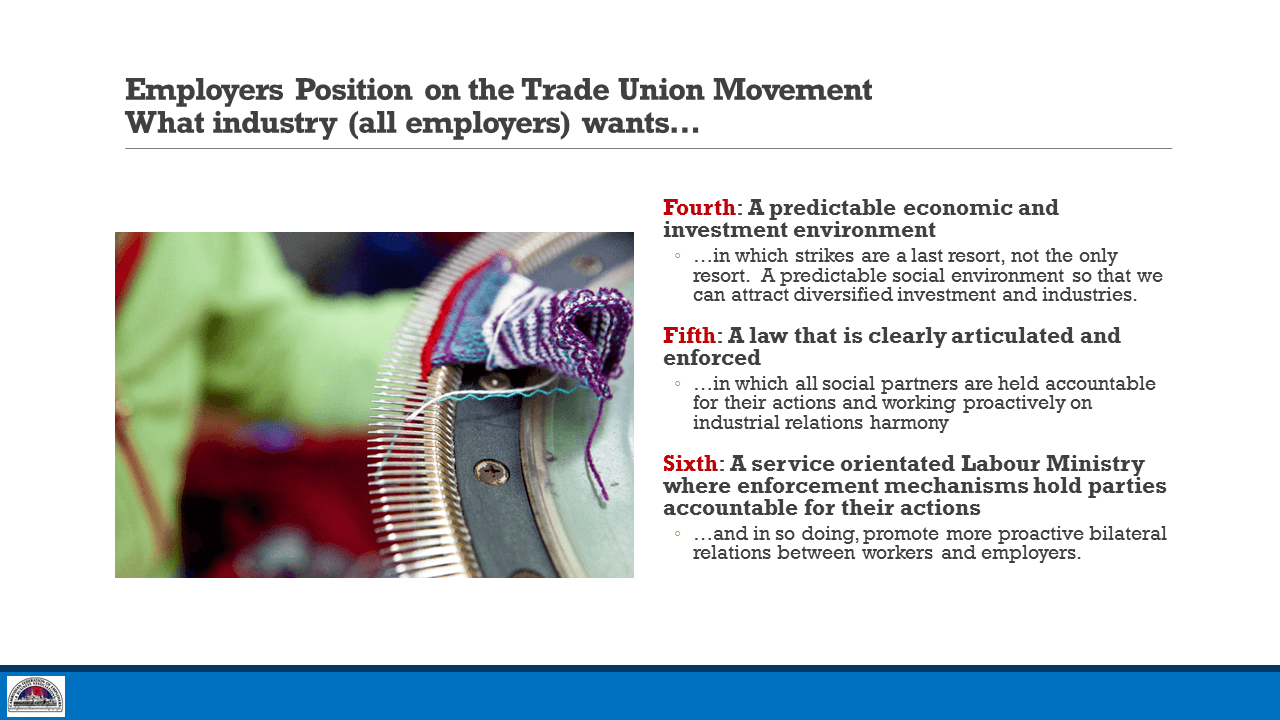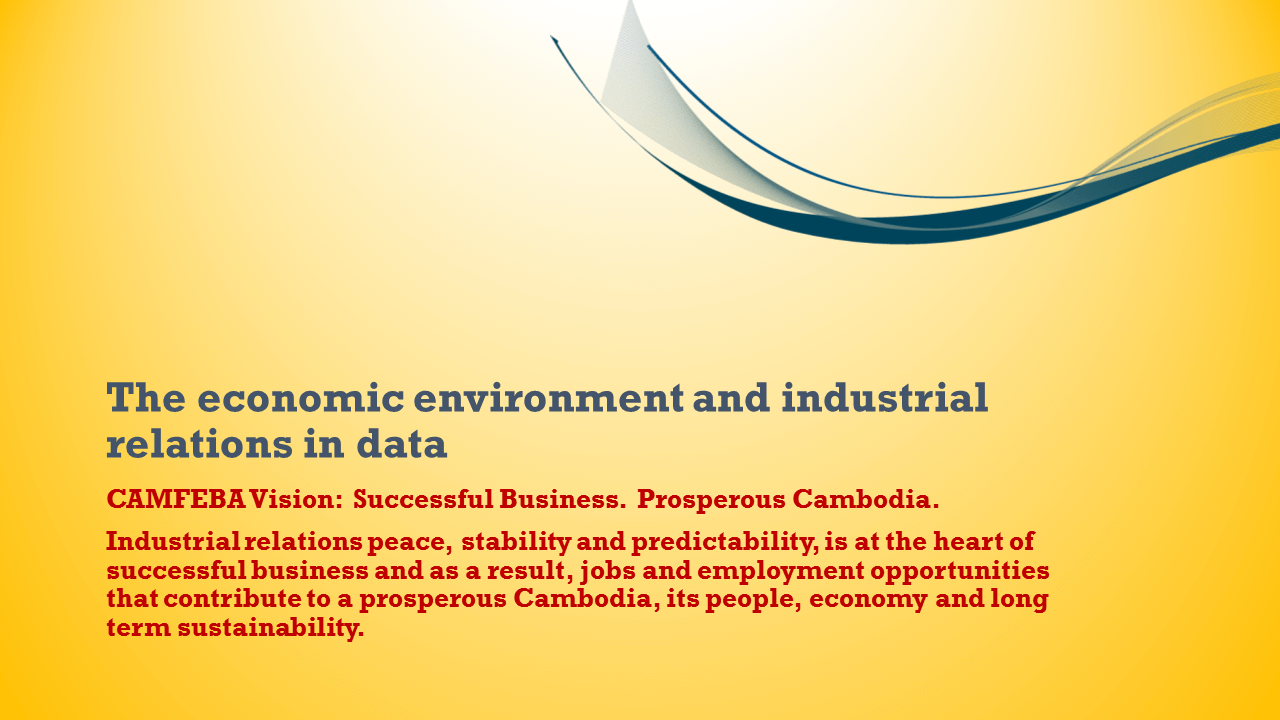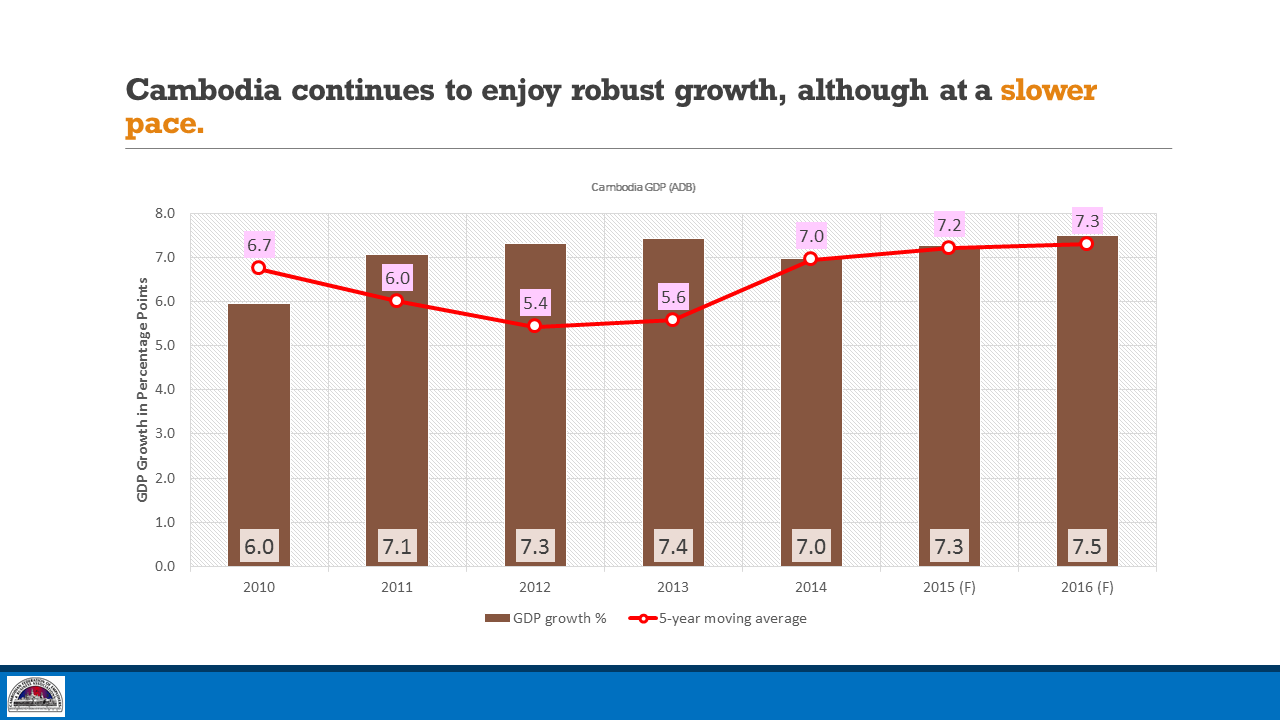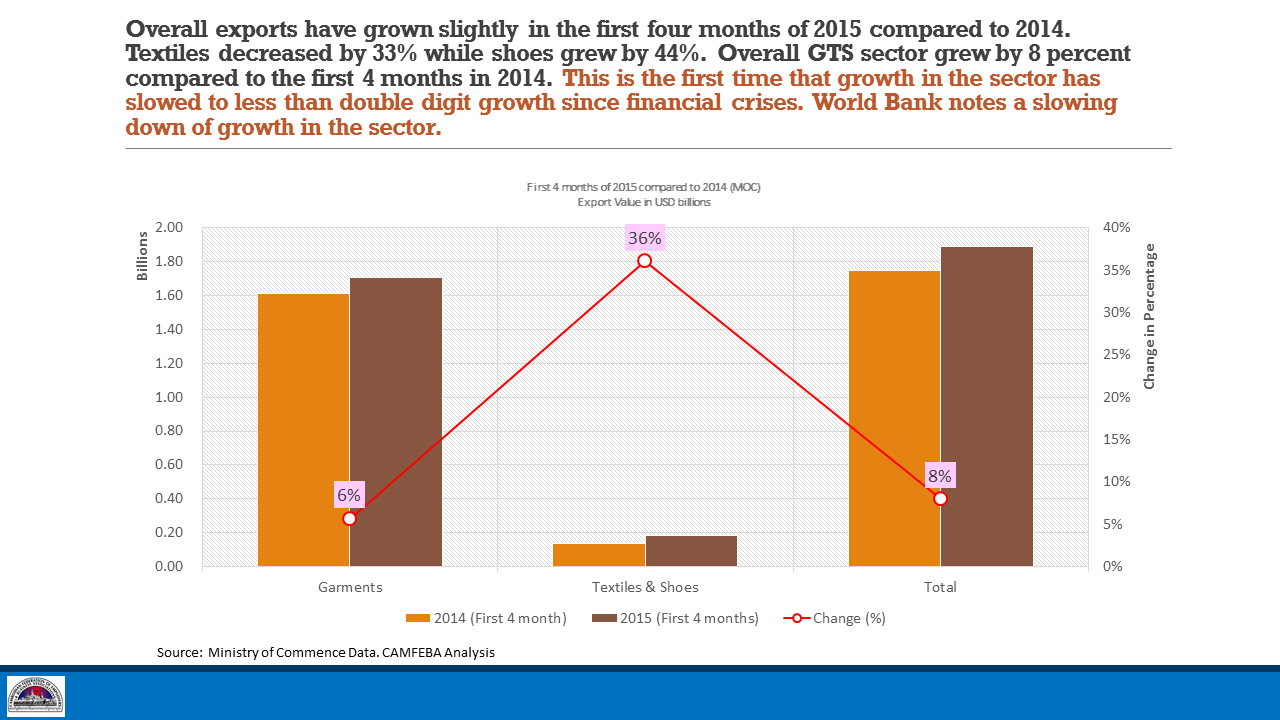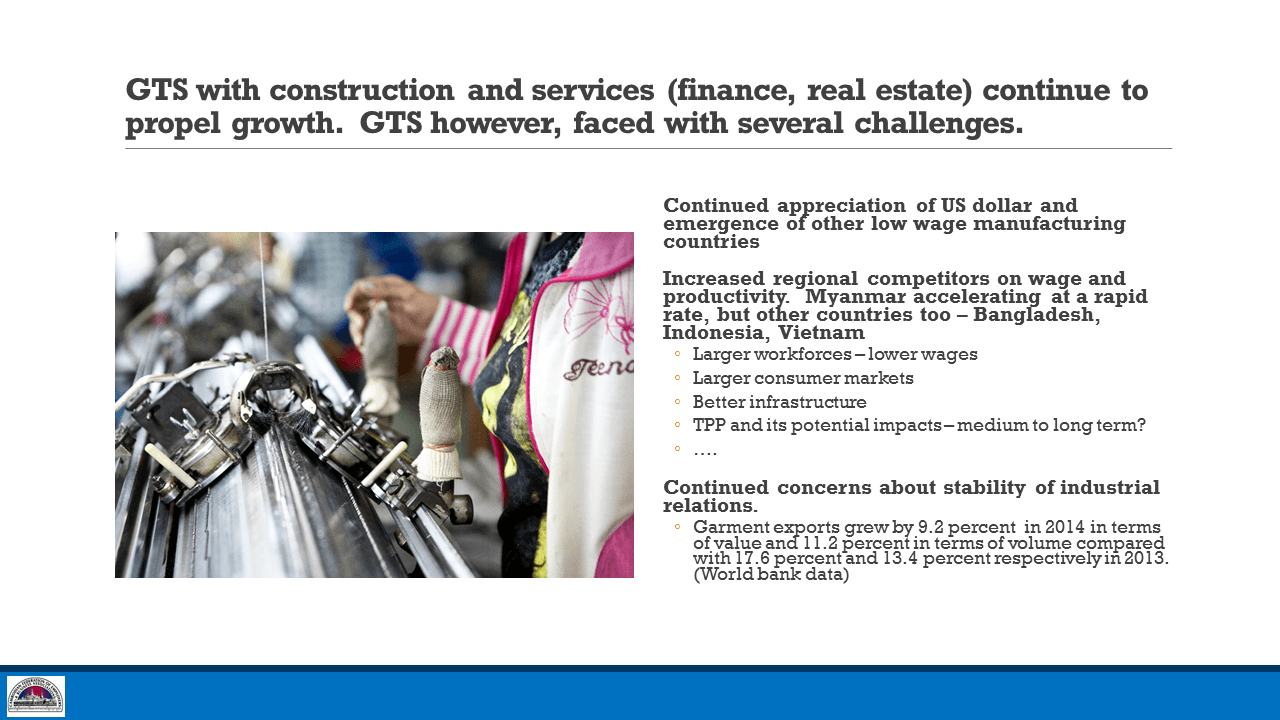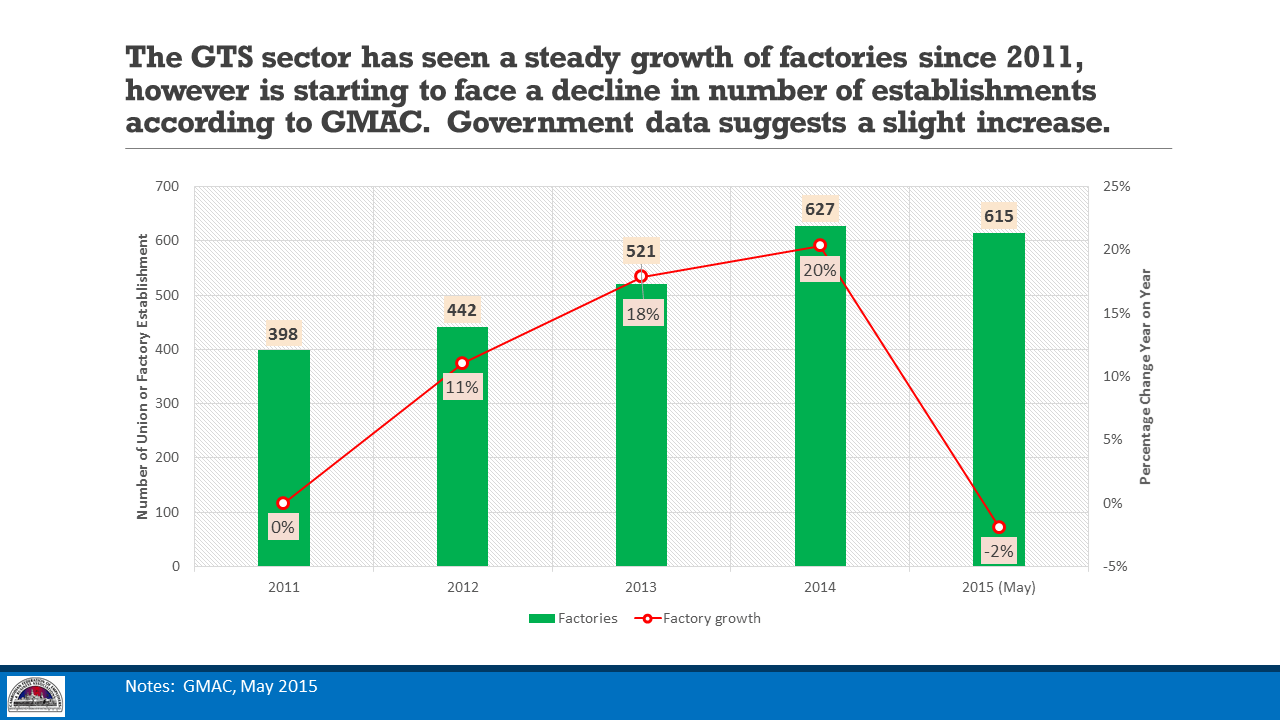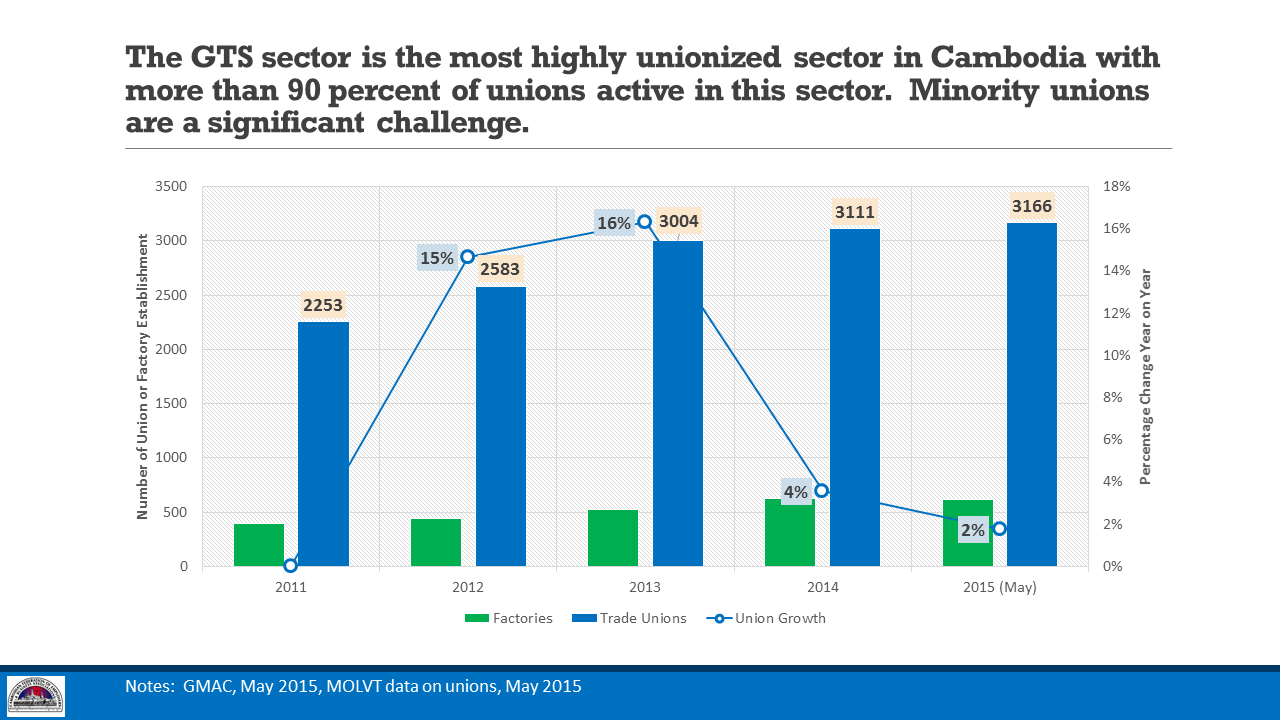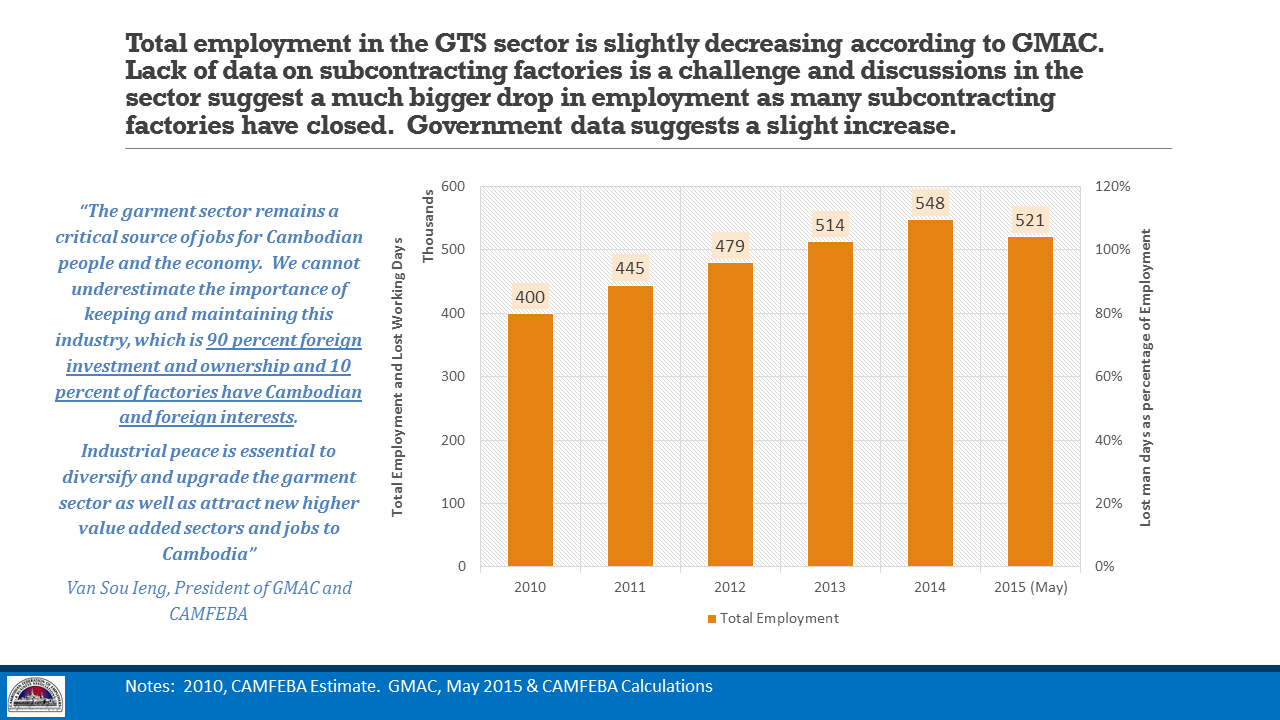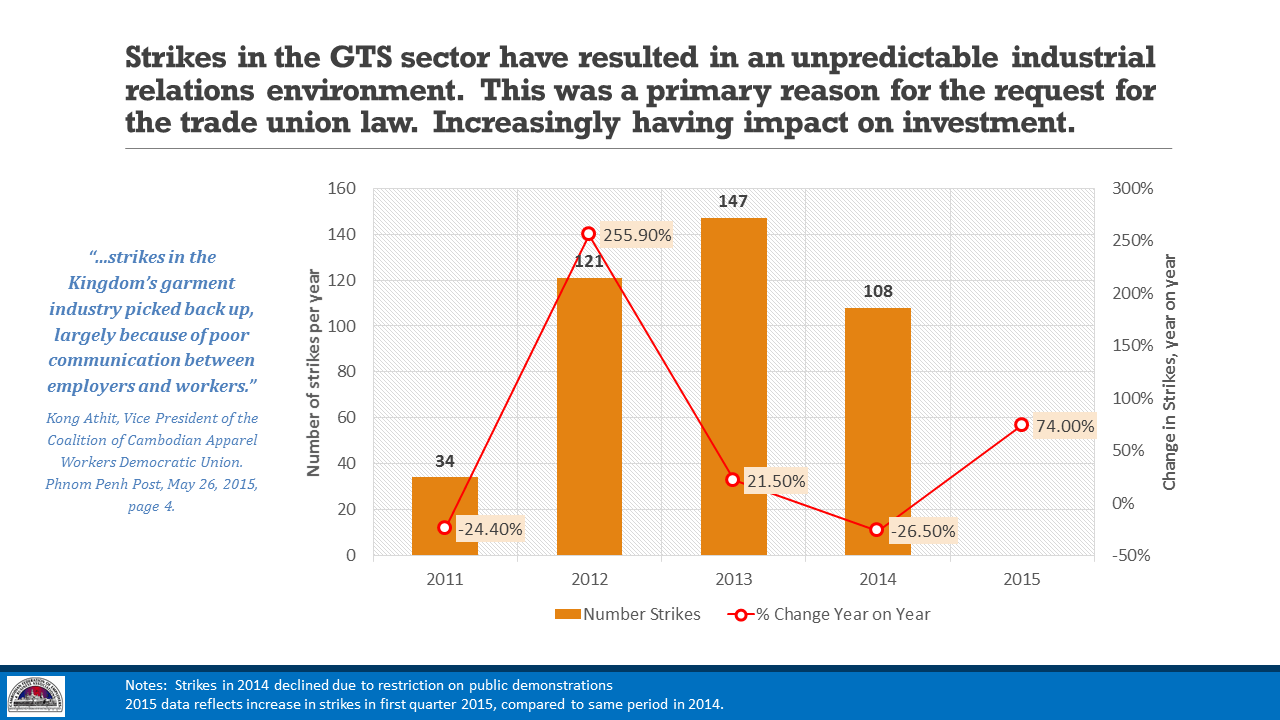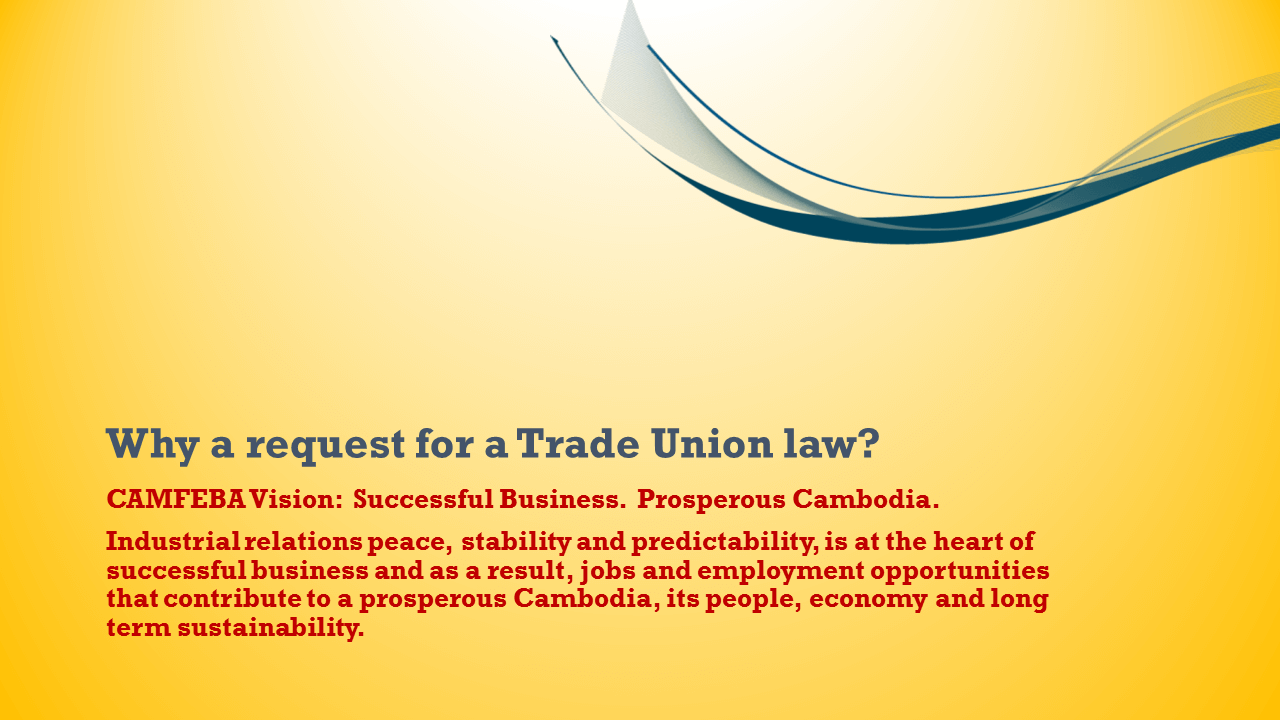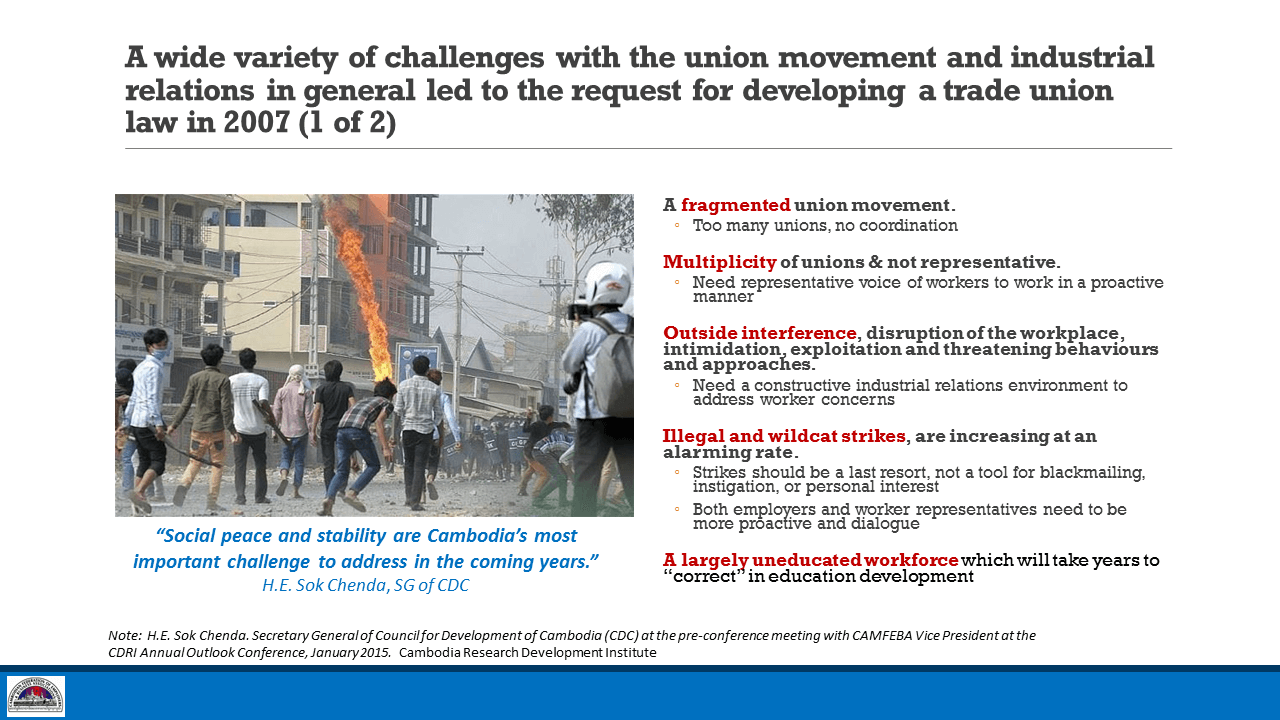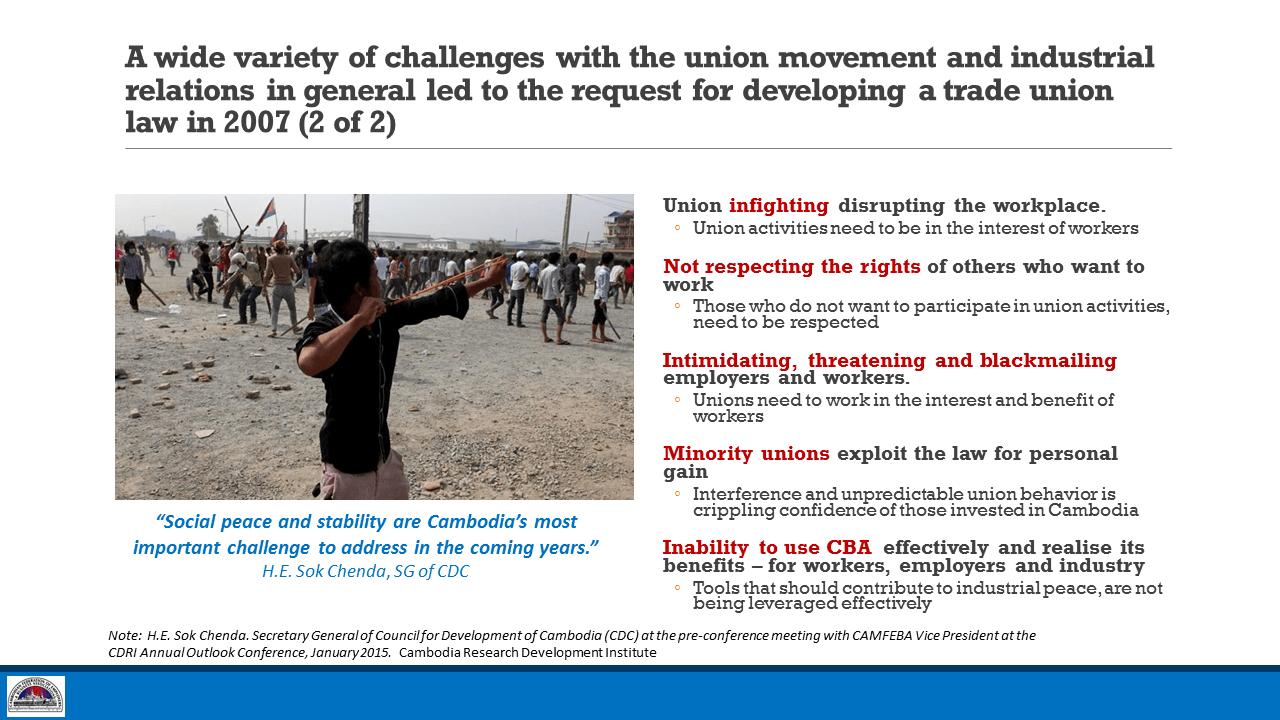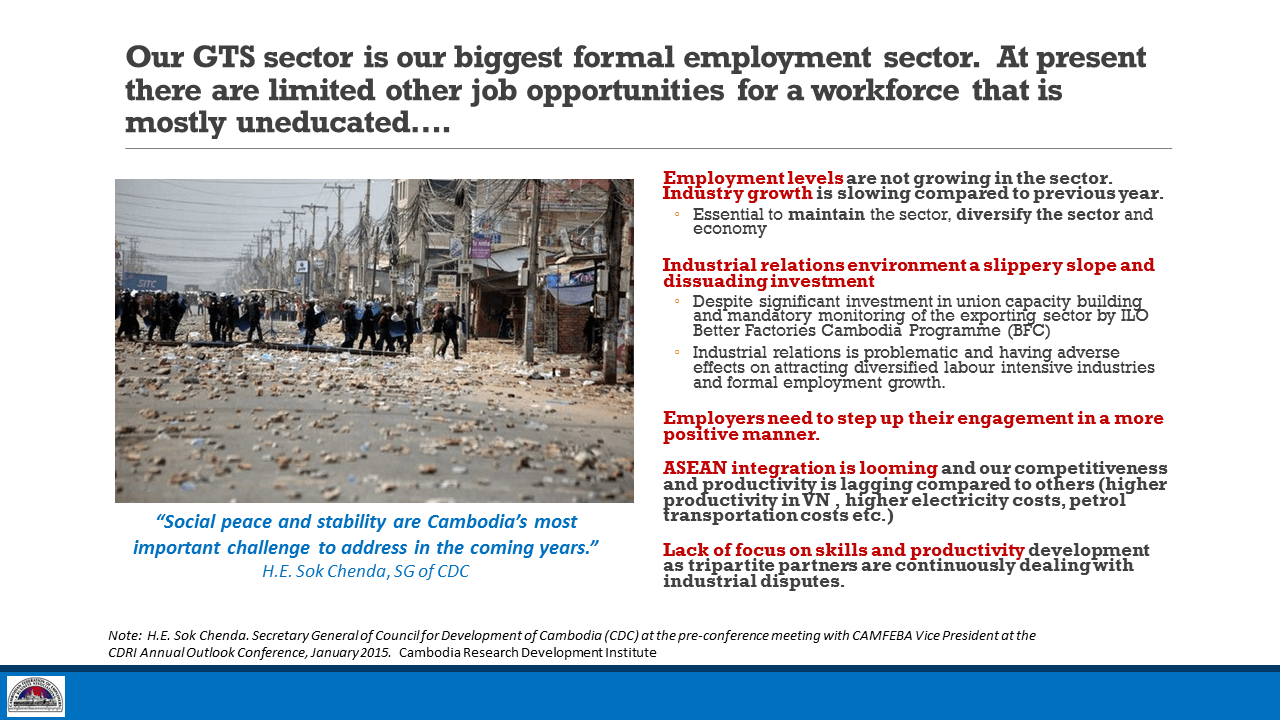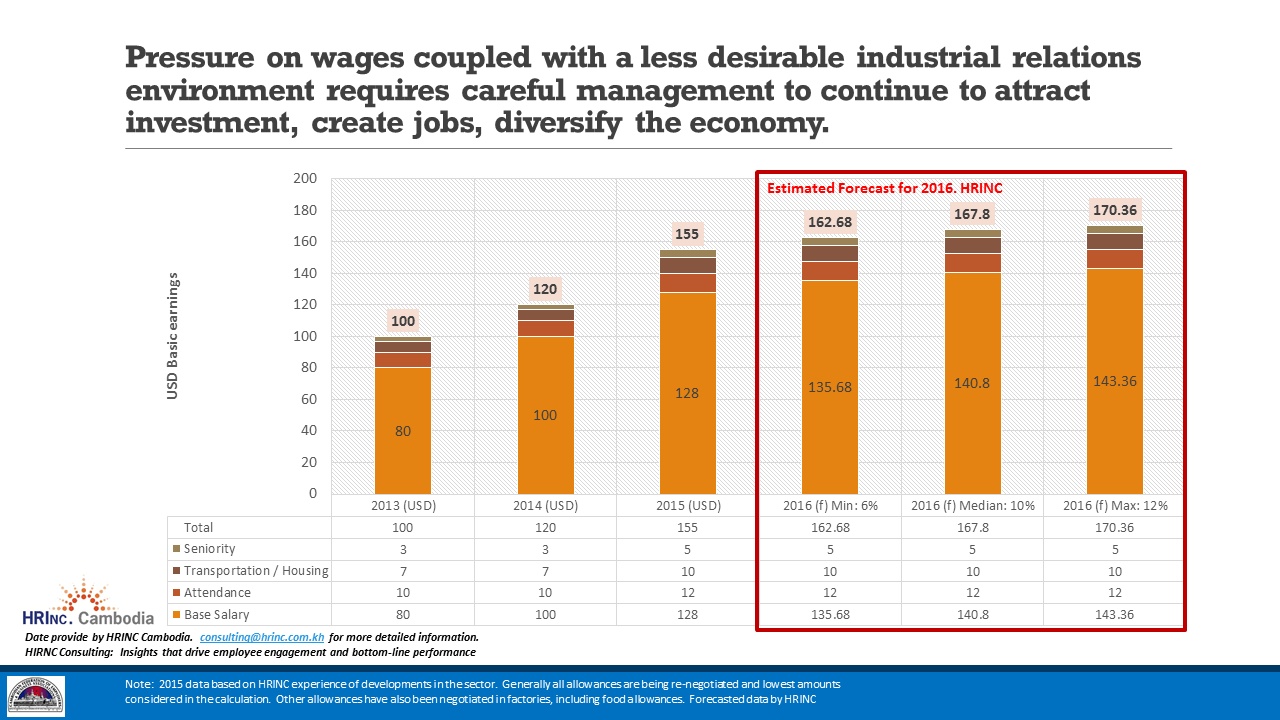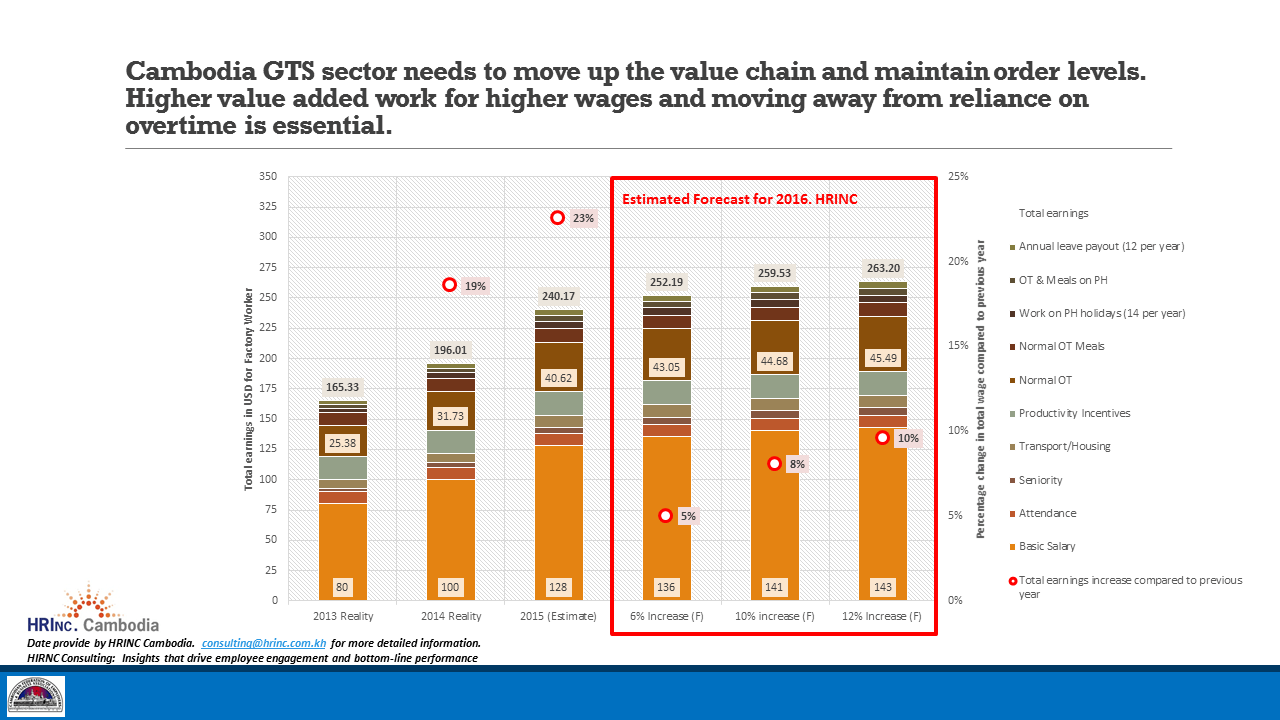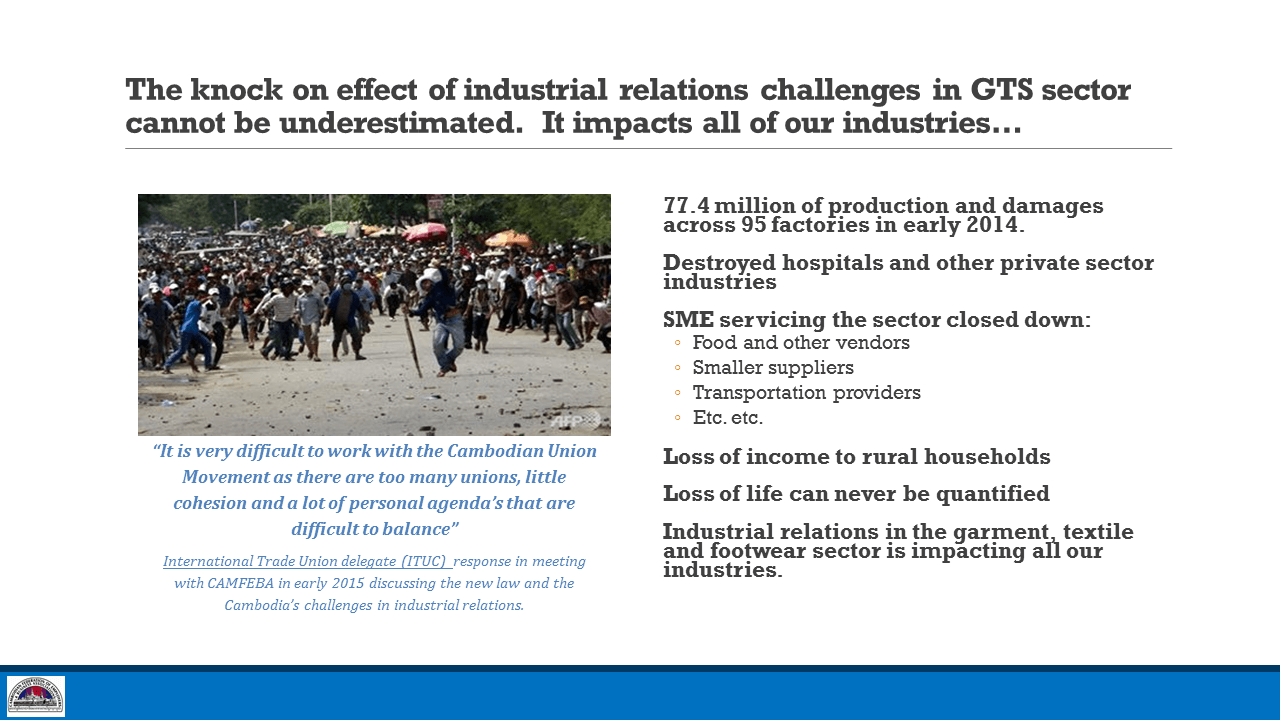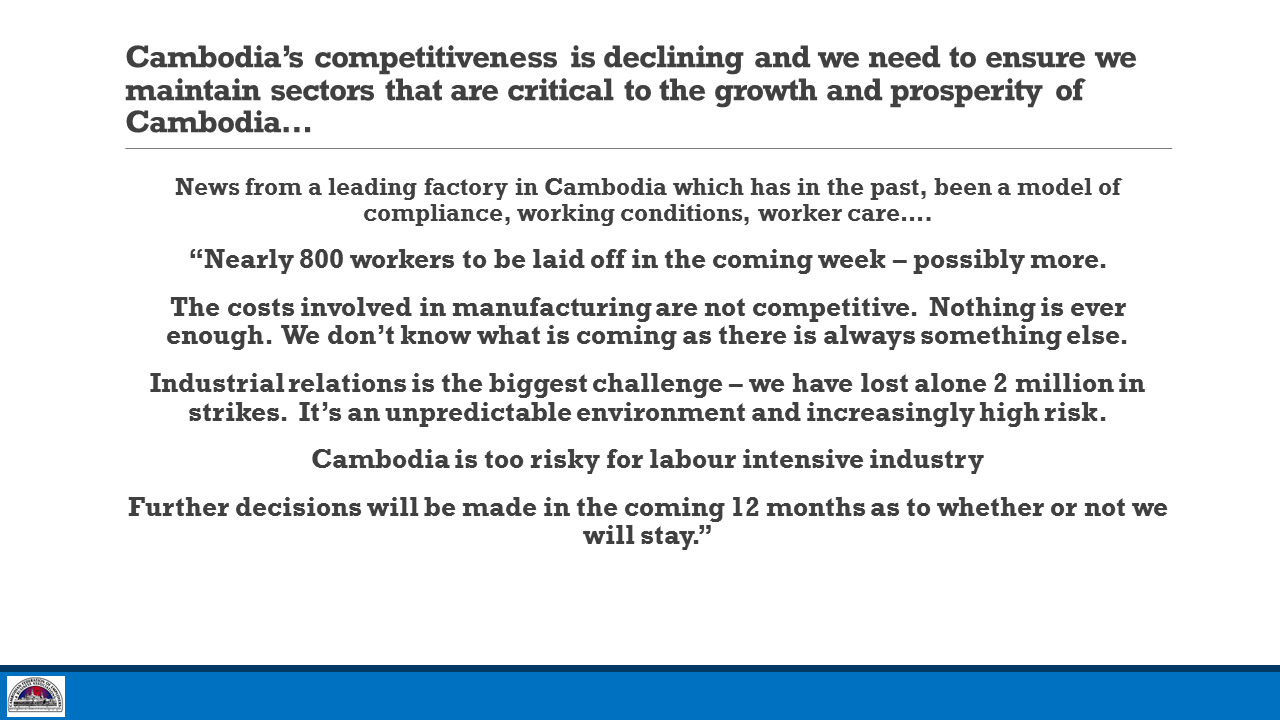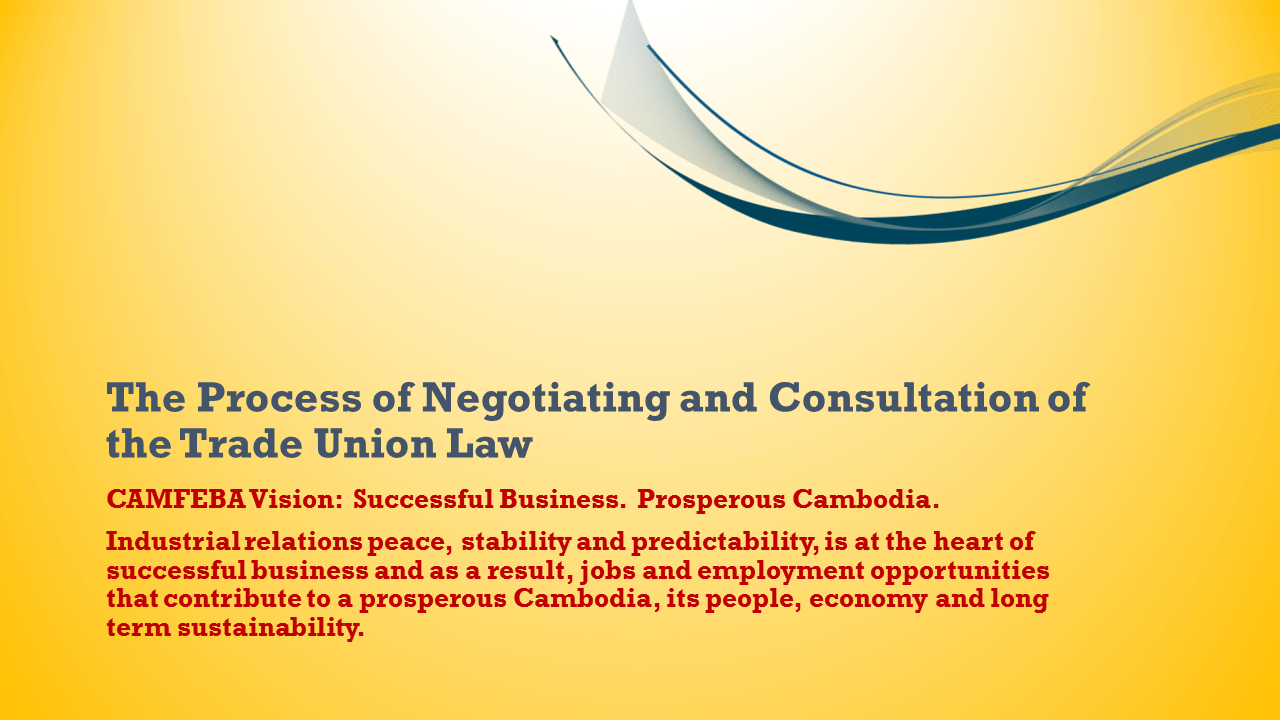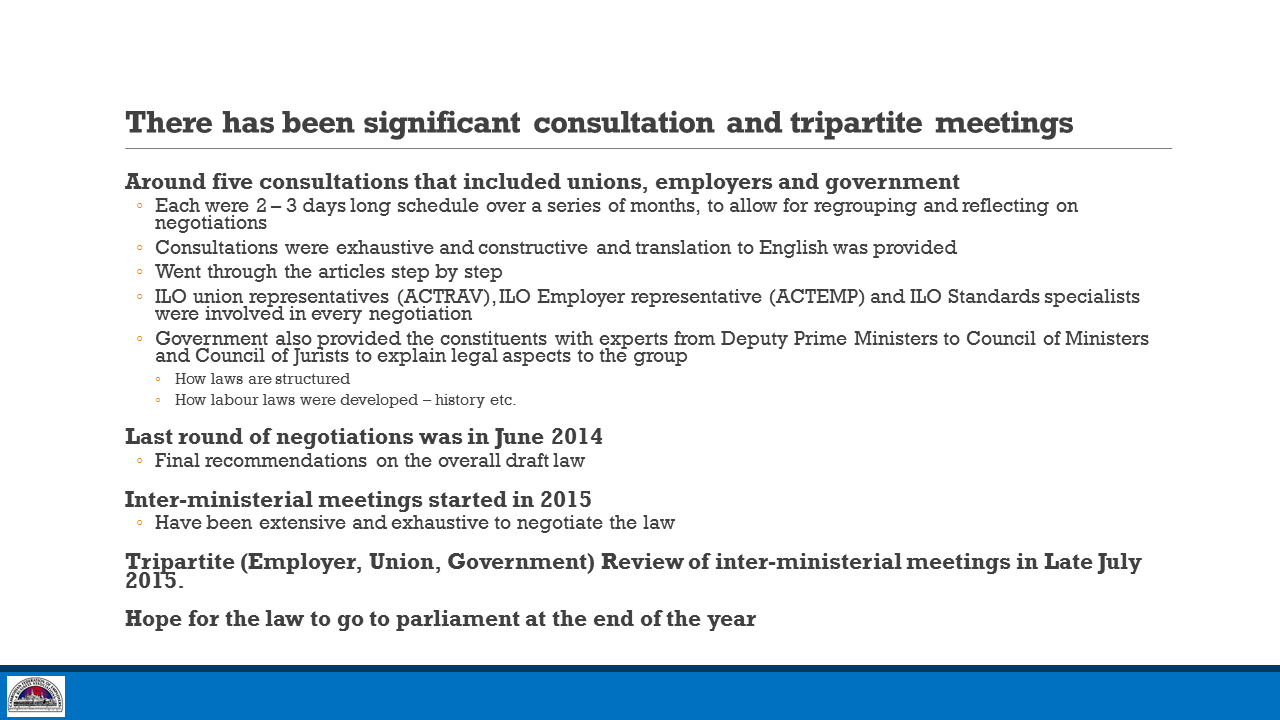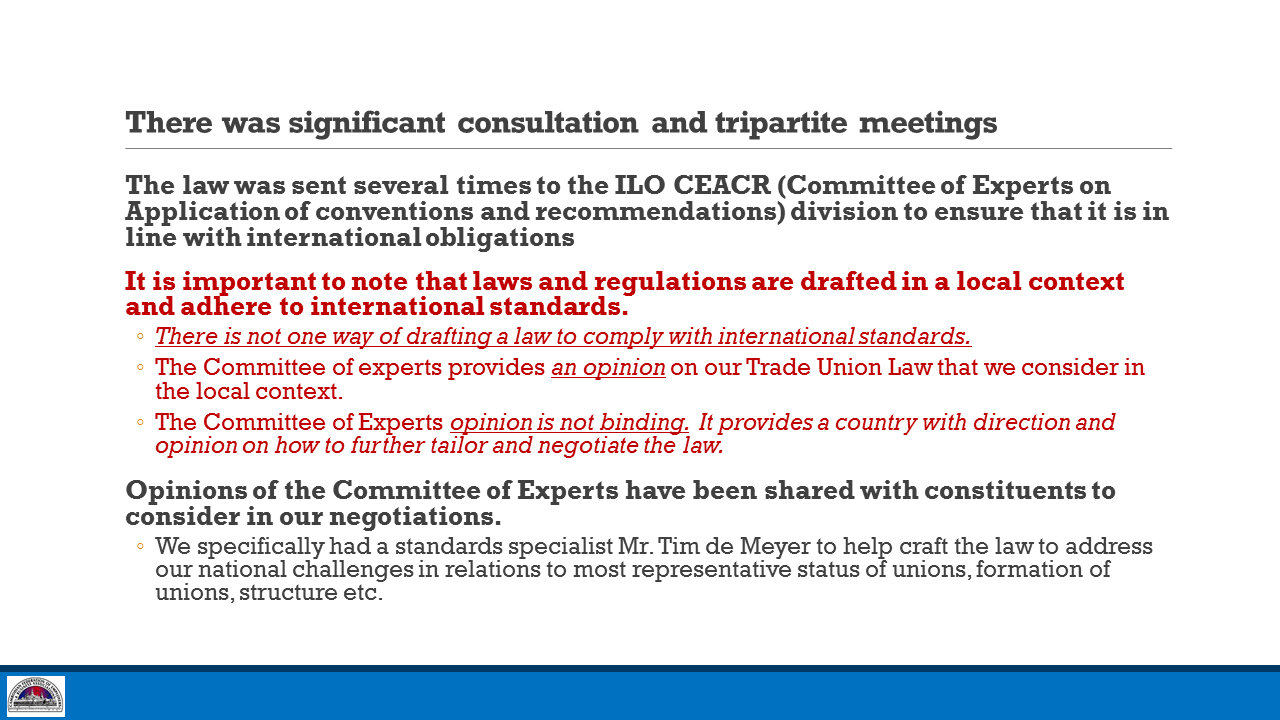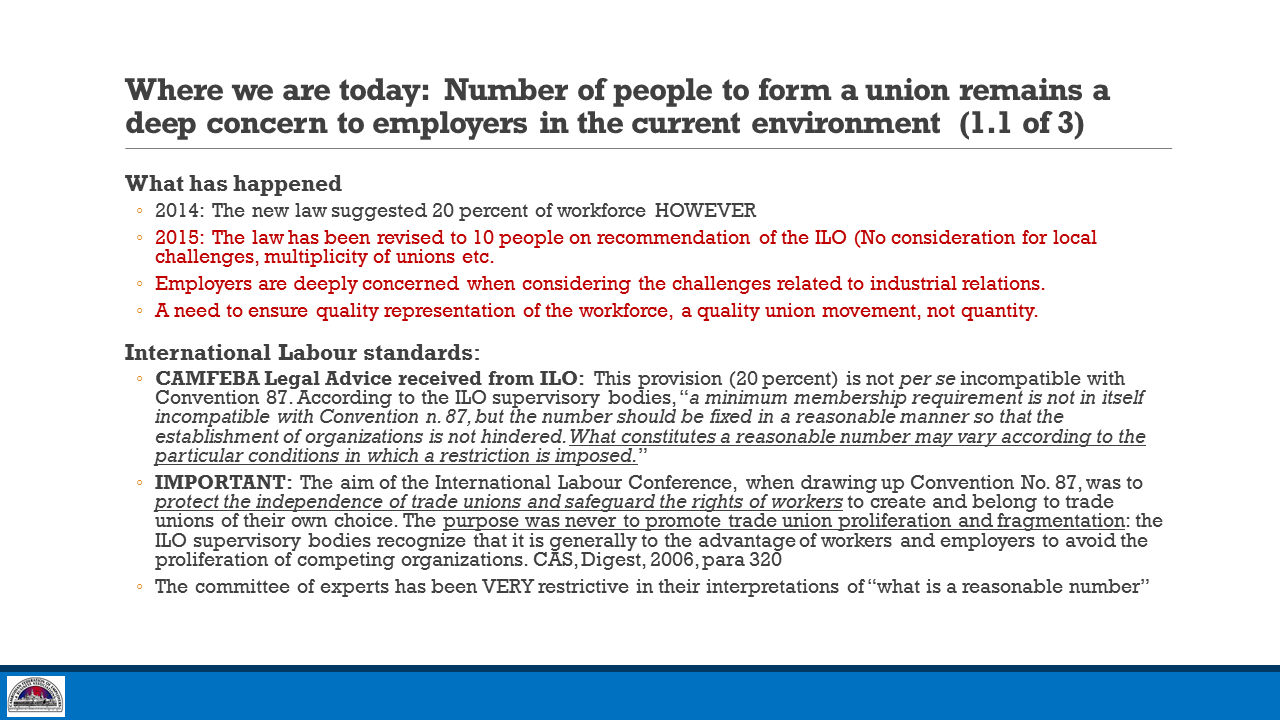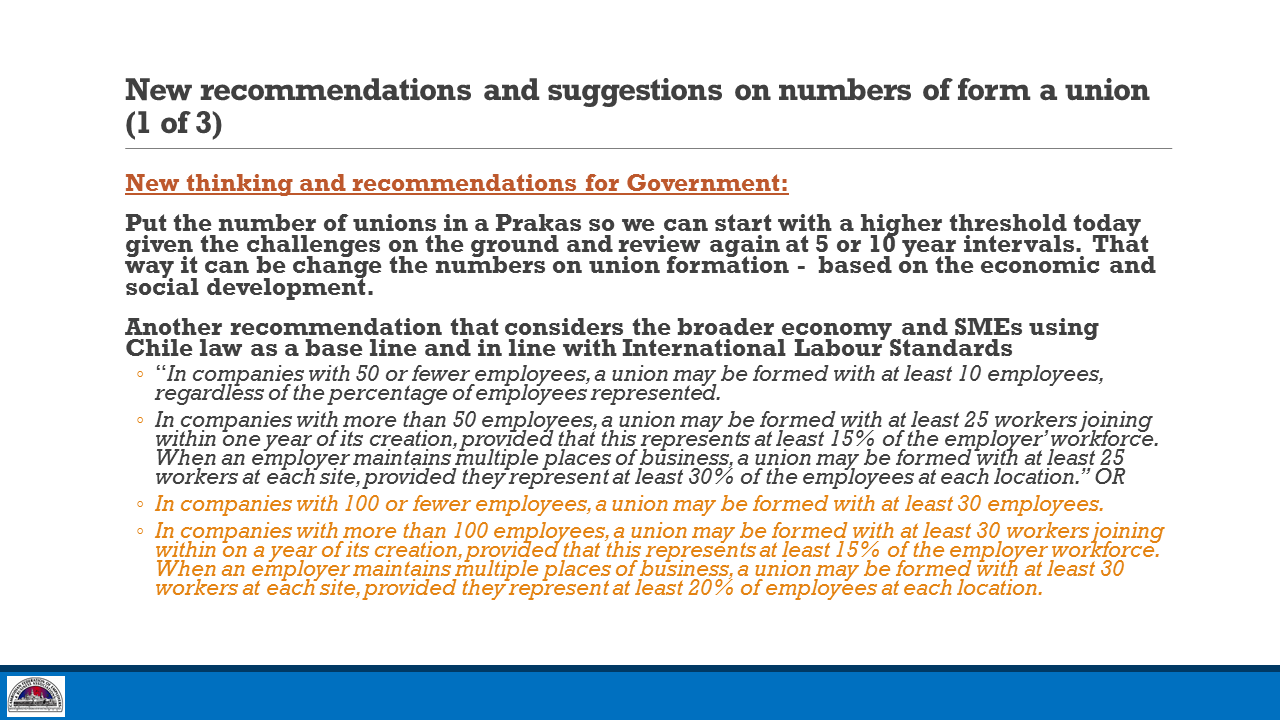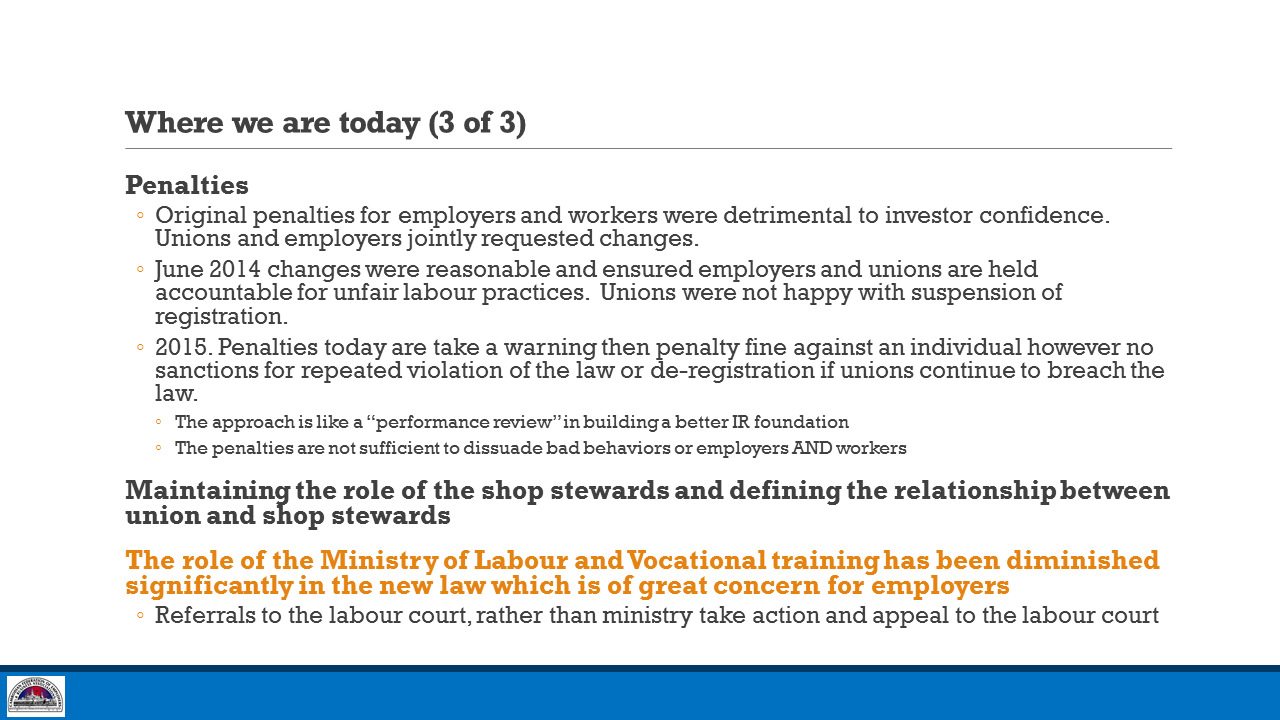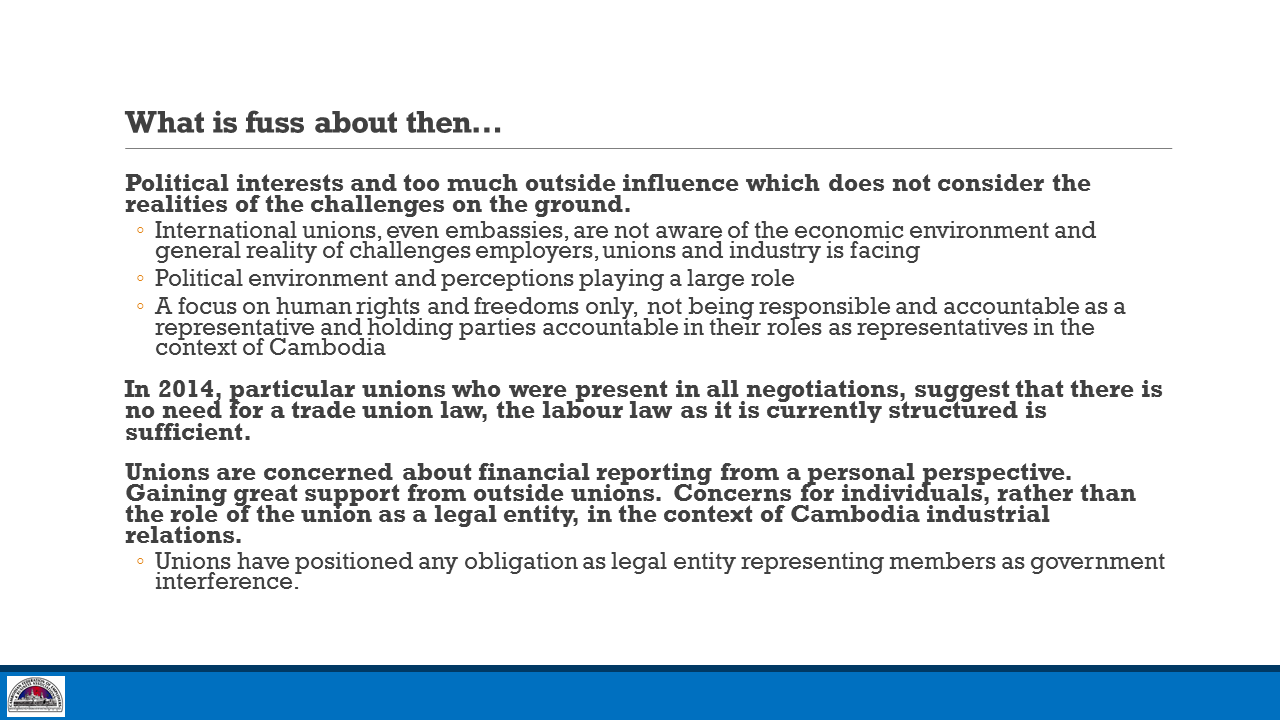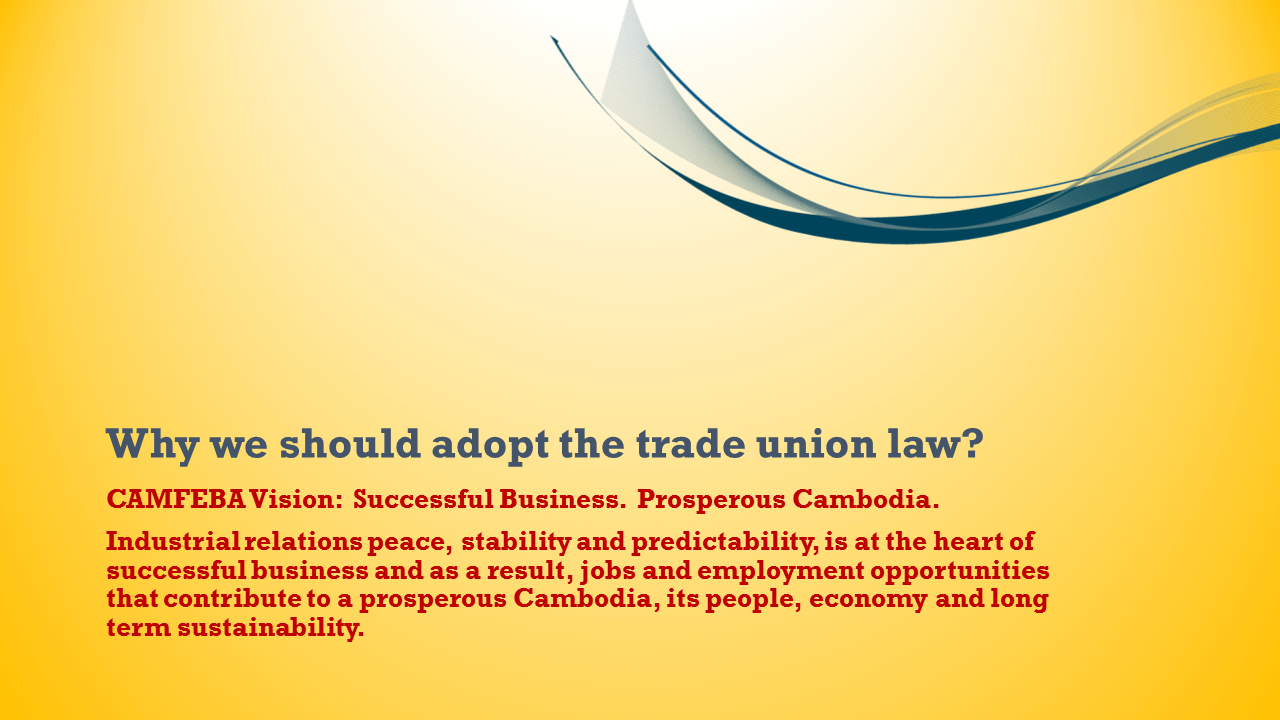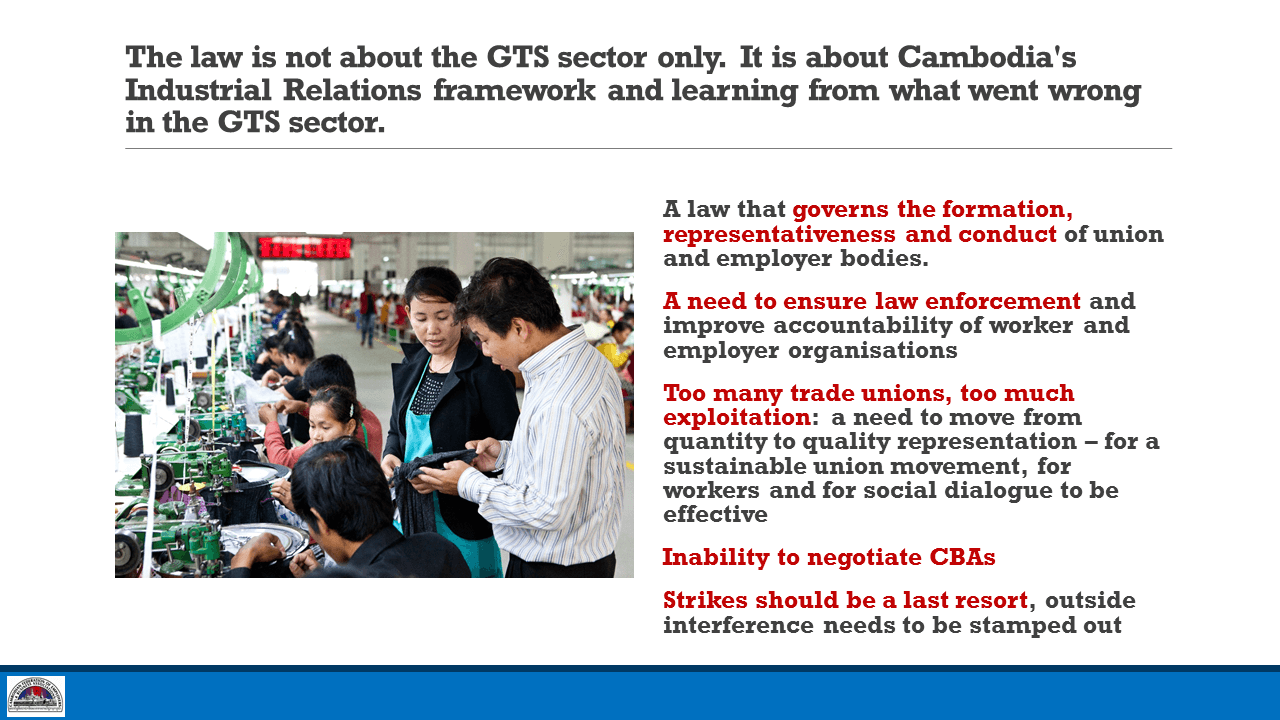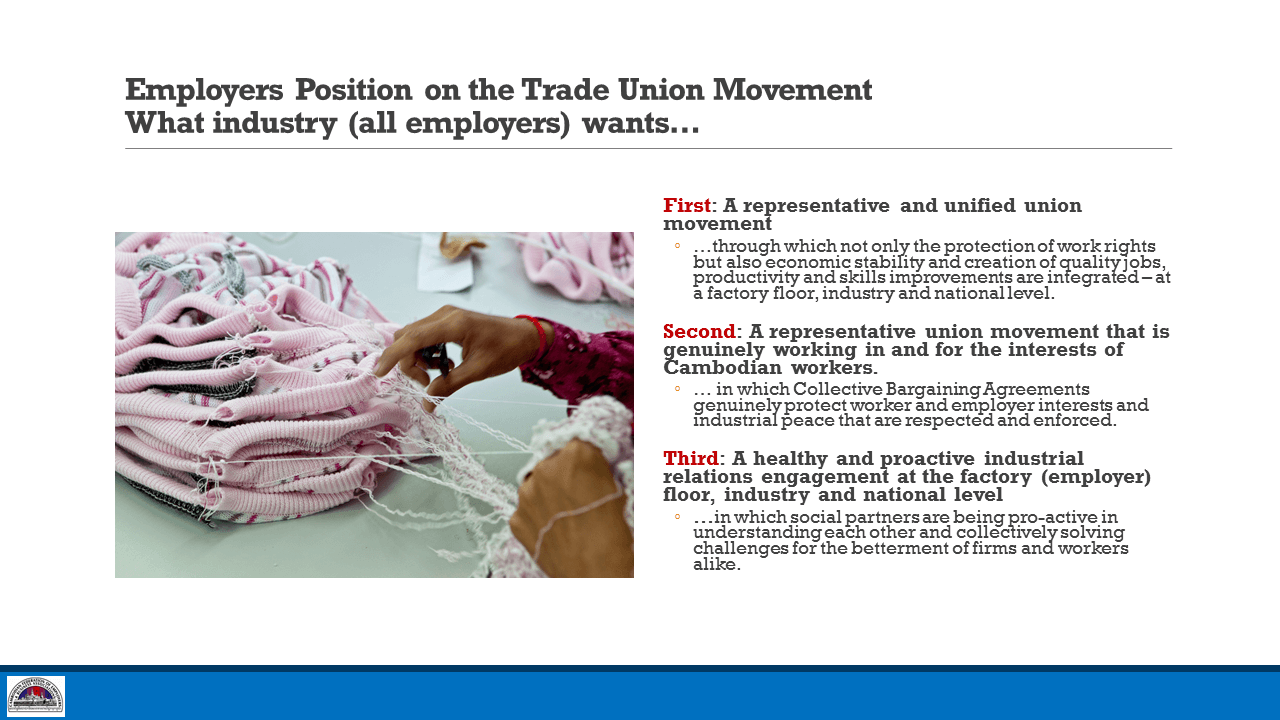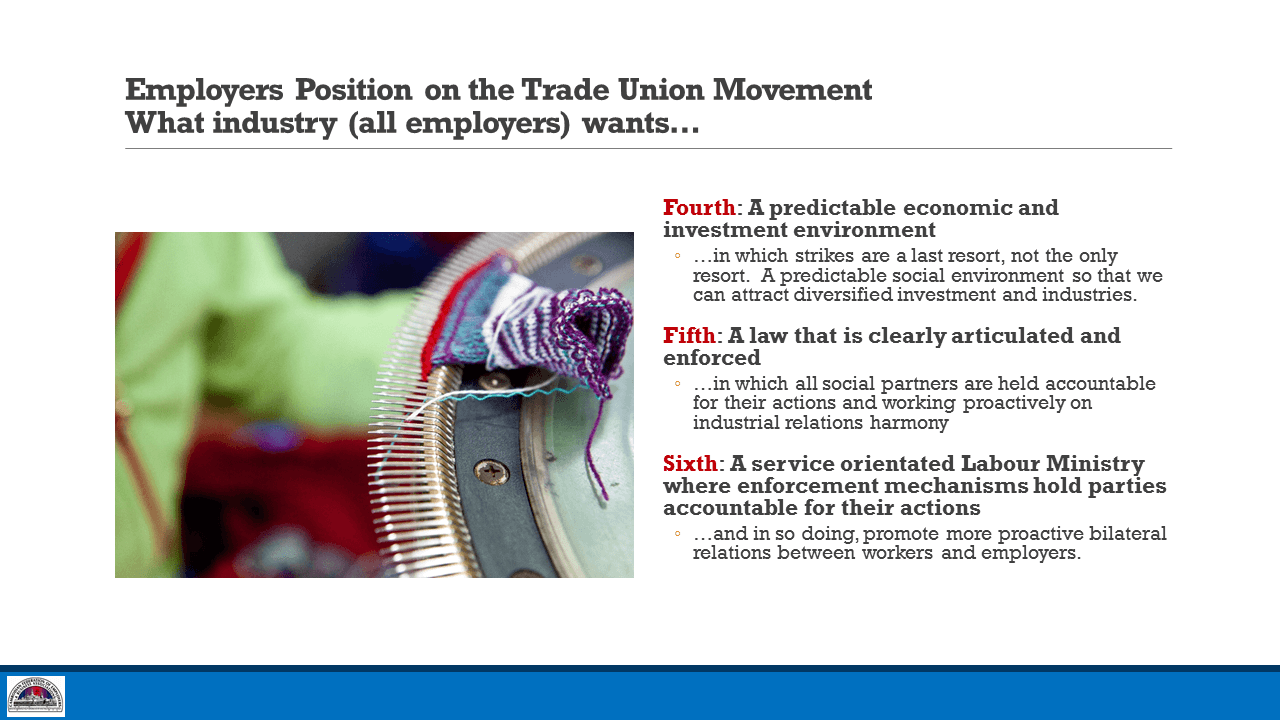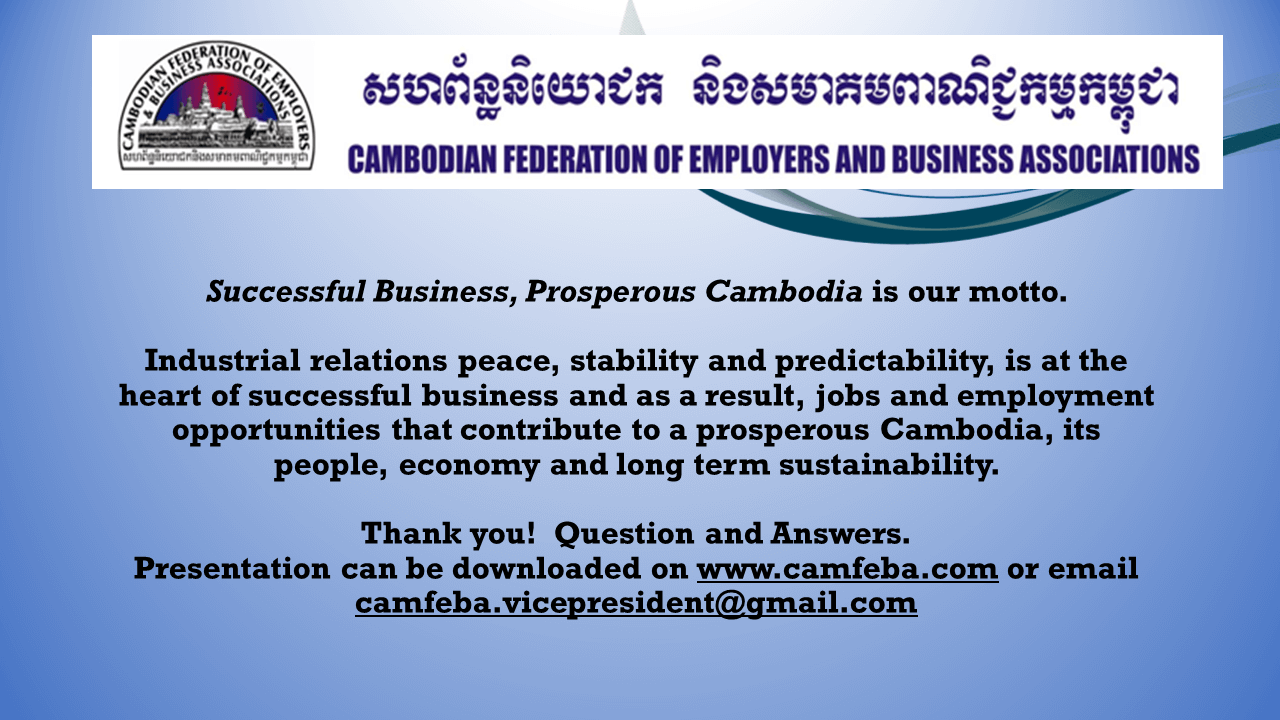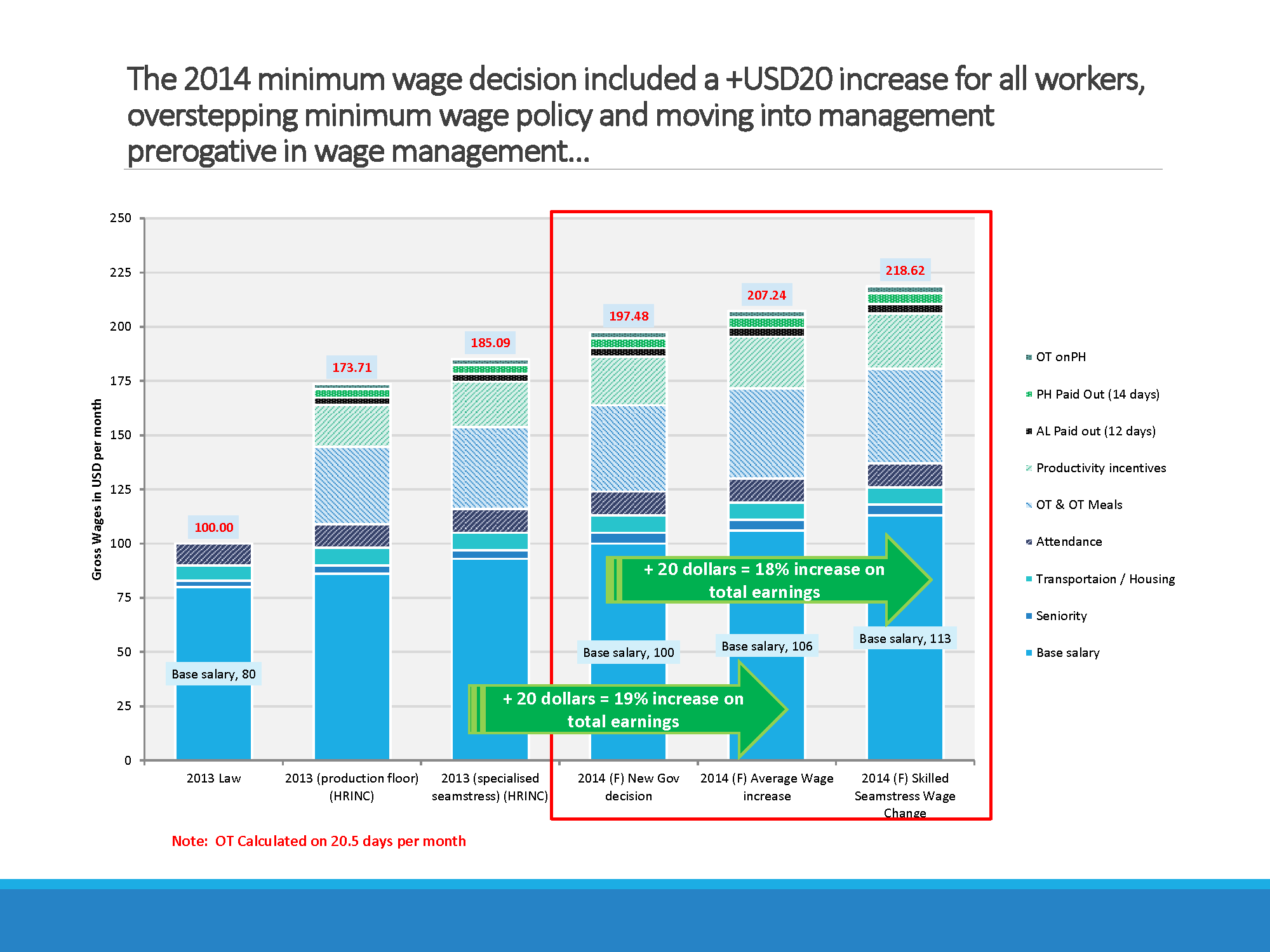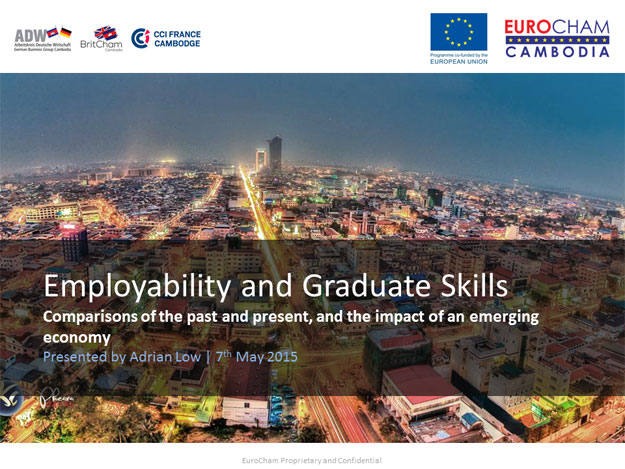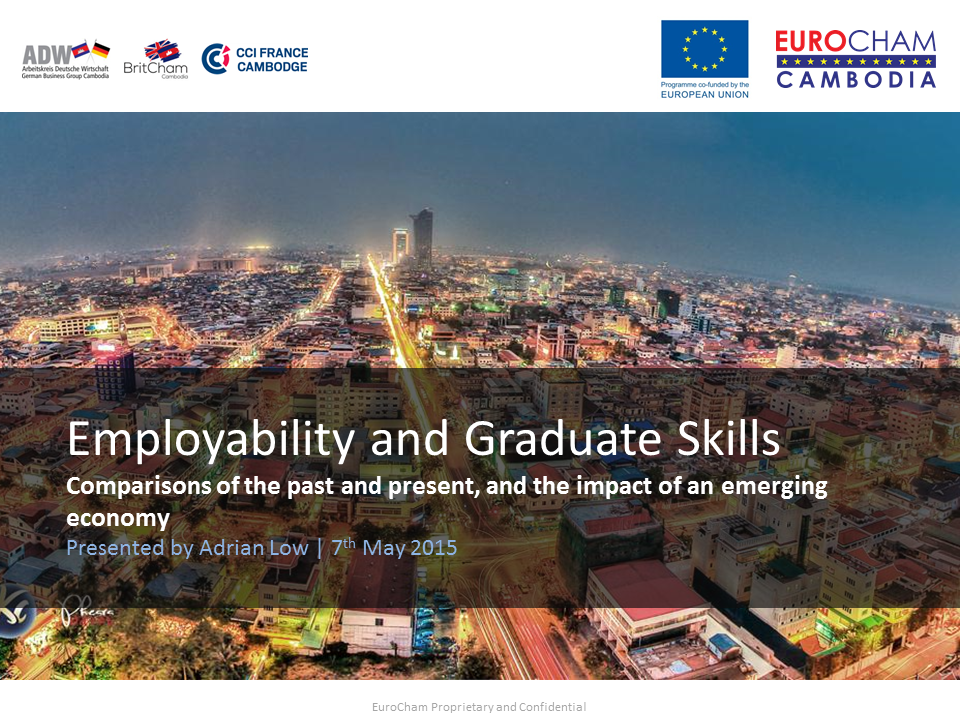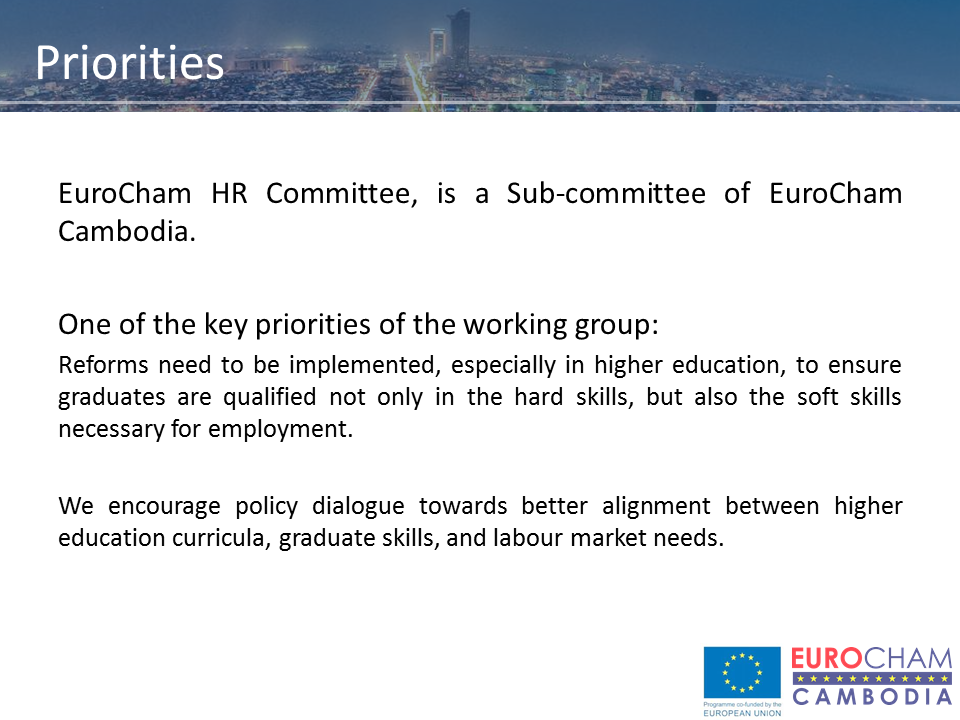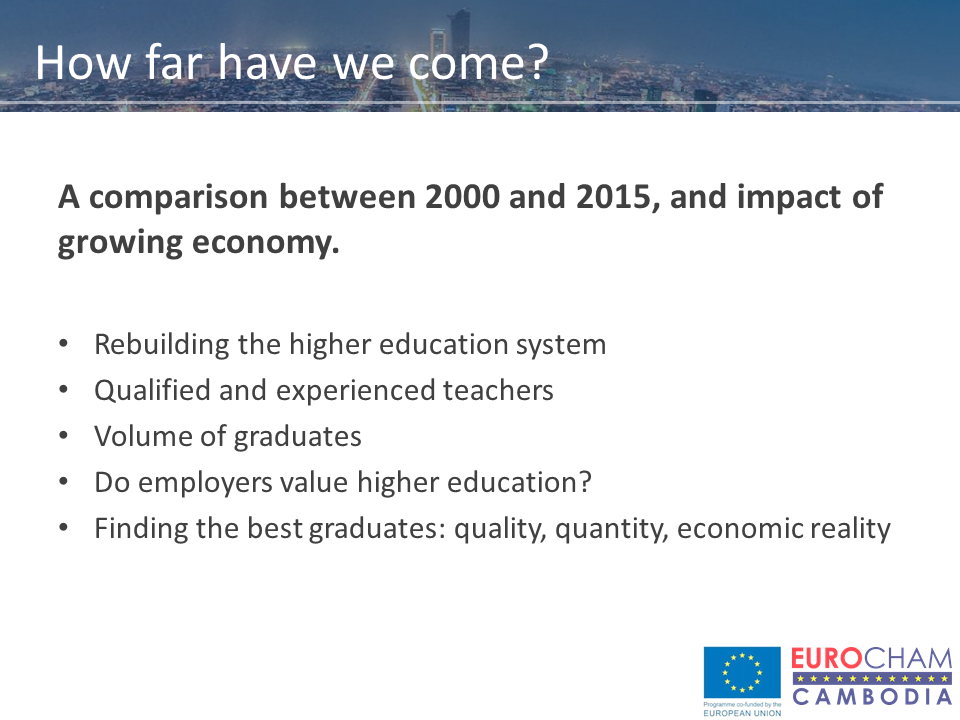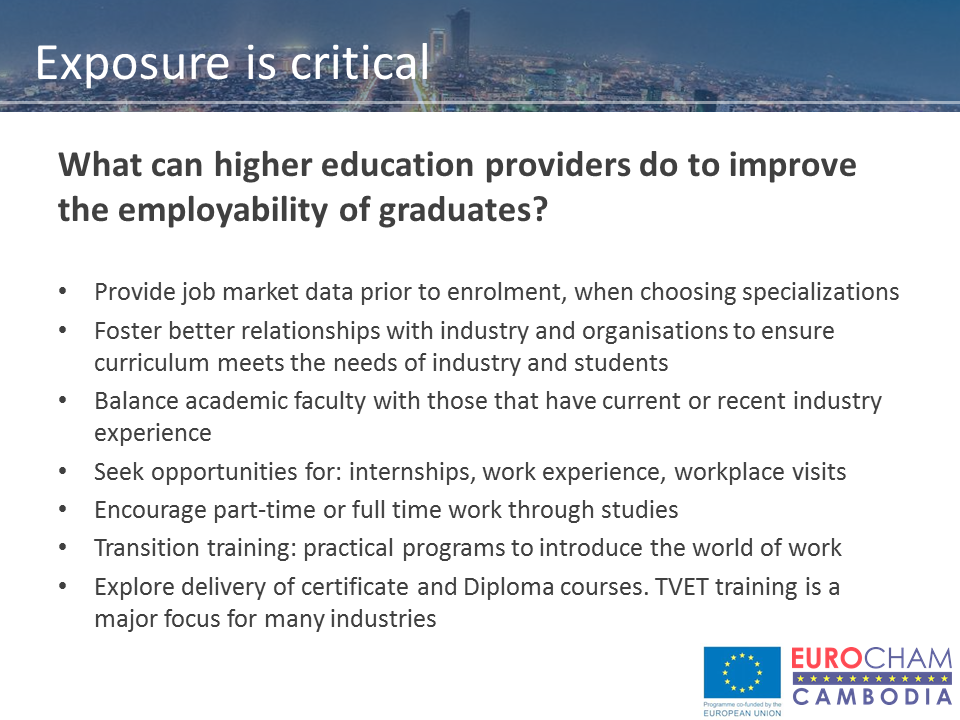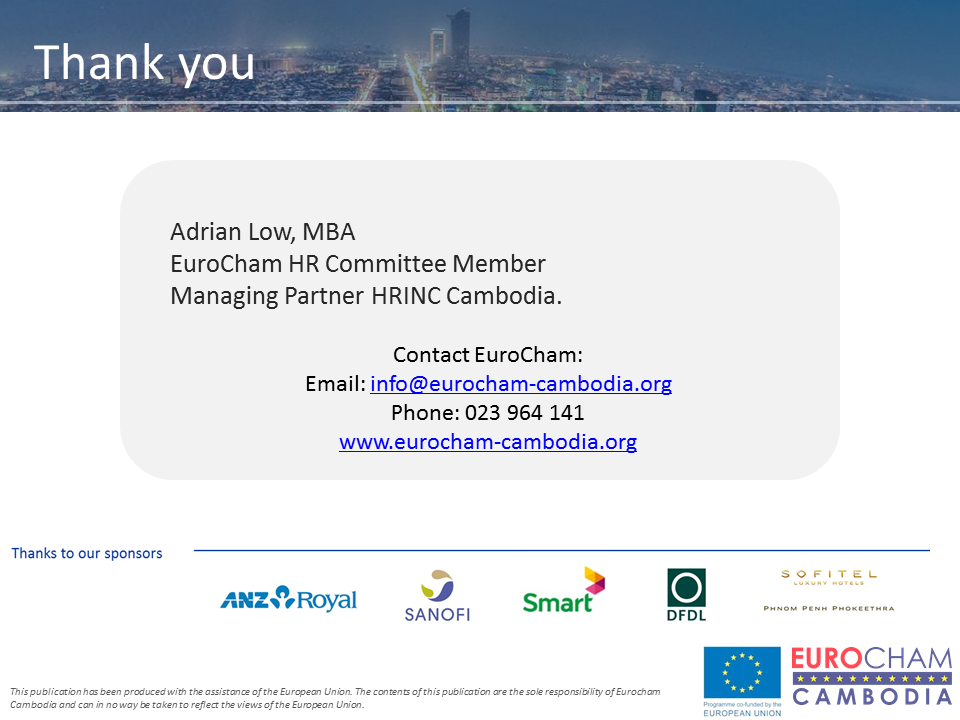Distinguished President, Vice Presidents and Delegates,
I am the Vice President of the Cambodian Federation of Employers and Business Associations (CAMFEBA), Cambodia’s umbrella employer body representing the voice of industry in Cambodia.
On behalf of the Cambodian delegation, we extend our best wishes and thoughts go to the Ghanaian delegation as they face a humanitarian crises.
Today, I will comment on specific aspects of the Director General’s report as they are pertinent to Cambodia. The topic of the report is highly relevant today, in particular for Cambodia.
First, as the report rightly points out, globalization, advances in ICTs, migration patterns, and demographic trends are transforming the world of work. This is of importance to Cambodia and many ASEAN countries in the wake of ASEAN Economic Integration.
- While these forces create new opportunities, they also challenge vested interests, demand new skills, and test those less willing or able to adapt.
- Addressing these issues requires an innovative and creative approach that leaves behind preconceived ideas and outdated paradigms. It also requires that ILO is much more proactive, analytically rigorous and commanding and innovative in its work to remain truly relevant in assisting governments, employers and workers to understand the possible opportunities and challenges they may face in the context of their economies and societies in which they work.
- And this is critical, the relevance of ILO work is only relevant, if it provides constituents in country, with appropriate options for consideration in their economic and social environment that will best address the challenges that constituents face in their country – whether through technical assistance, programming or assisting in critical social and legislative developments in the country or capacity building.
Second, for the last year, the Employers’ Group has been asking for a brave ILO approach, not in the spirit of questioning fundamental principles and rights at work, but with the aim of ensuring these rights and standards continue to be relevant and enforceable in new work environments. The Employers Group voice, is echoed at the country level in Cambodia.
- The Report properly affirms that “any attempt to resist innovation should not so much be considered misguided or self-defeating but simply impossible. There can be no credible way to do so”.
- However, progress and innovation can and must be shaped for many reasons, among others, to ensure an enabling environment for business so that the general economic and social environment, enables job creation in which both business and worker reap the benefits of labor and innovation. The ILO too must live up to these aspirations of innovation.
- To achieve this, requires a fresh look at the diversification of employment models and relationships with a view to achieving more relevant employment and social policies.
- It requires too that employers and workers relook at how they engage in a significantly more diverse and dispersed working environment.
- It also requires that both employers and workers understand their responsibilities and accountabilities in contributing to a productive economic and social environment
Third, the report also cites a range of transformational changes that are already impacting the workplace and which will continue into the future.
- Employers acknowledge that dealing with this ambitious topic does require parallel consideration of several elements: ((employment trends, income distribution, demographic trends, legal and institutional frameworks, fundamental principles and rights at work, among others.))
- However, proper focus is needed, which means first exploring HOW organizational, technological and sociological changes affect the way we work, and then how these elements impact specific topics such as social protection systems, the decent work agenda, informality and the skills gap.
- Failing this, any analysis risks repeating general policy discussions that already take place in the ILO and the work that we do in this house, will deem to be somewhat irrelevant to the country context
Of critical importance in Cambodia, are these two points:
- An ILO that is relevant, innovative, progressive and analytically commanding and competent in its work for Cambodian constituents.
- An ILO that is contributing to creating an enabling environment for business and investment so that we can diversify the economy and as a country, move up the value chain of industrial diversification. At the heart of this social peace. While we pursue social dialogue with rigor in Cambodia, it is necessary that we also have unified and representative employer and worker associations to engage with. To this end, it is the quality of employer and worker associations that is important, not the quantity of associations that we have.
Mr Chair, Cambodia is undergoing significant change and is posed with many opportunities and challenges as we embark on ASEAN integration as well as country specific developments including new laws relating to trade unions and employer associations as well as social security and employment policies in the context of decent work. We are undergoing significant reform in education and other social sectors, as well as well as investment regulations in diversifying the economy. We have made great progress in many areas despite that change is difficult to manage. It will be the strength of representative employer and worker organisations specifically that are representative and unified, that will enable the change process to be managed and communicated successfully.
I close with thanking the ILO for its continued support to Cambodia. We continue to engage in a manner that is constructive and engaged in the interests of a prosperous Cambodia in a new era of ASEAN and ASEAN Economic Integration.
Thank you Mr. Chair.
Remarks delivered by
Sandra D’Amico
Vice President
Cambodian Federation of Employers and Business Associations (CAMFEBA)
Contact: www.camfeba.com or This email address is being protected from spambots. You need JavaScript enabled to view it.







































































